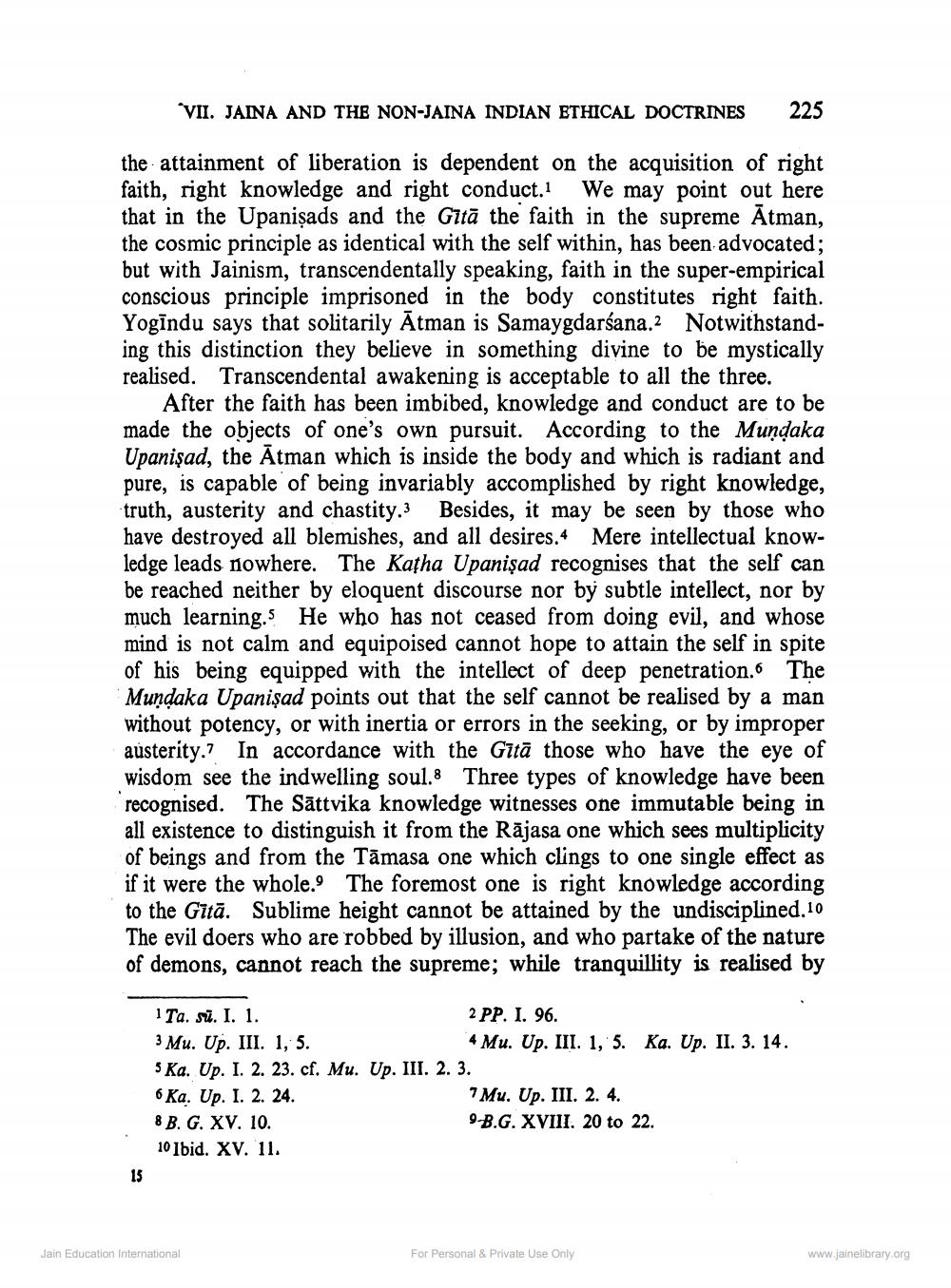________________
VII. JAINA AND THE NON-JAINA INDIAN ETHICAL DOCTRINES
225
the attainment of liberation is dependent on the acquisition of right faith, right knowledge and right conduct. We may point out here that in the Upanisads and the Gitā the faith in the supreme Atman, the cosmic principle as identical with the self within, has been advocated; but with Jainism, transcendentally speaking, faith in the super-empirical conscious principle imprisoned in the body constitutes right faith. Yogīndu says that solitarily Ātman is Samaygdarśana.2 Notwithstanding this distinction they believe in something divine to be mystically realised. Transcendental awakening is acceptable to all the three.
After the faith has been imbibed, knowledge and conduct are to be made the objects of one's own pursuit. According to the Mundaka Upanişad, the Ātman which is inside the body and which is radiant and pure, is capable of being invariably accomplished by right knowledge, truth, austerity and chastity. Besides, it may be seen by those who have destroyed all blemishes, and all desires.4 Mere intellectual knowledge leads nowhere. The Katha Upanişad recognises that the self can be reached neither by eloquent discourse nor by subtle intellect, nor by much learning. He who has not ceased from doing evil, and whose mind is not calm and equipoised cannot hope to attain the self in spite of his being equipped with the intellect of deep penetration. The Mundaka Upanişad points out that the self cannot be realised by a man without potency, or with inertia or errors in the seeking, or by improper austerity. In accordance with the Gītā those who have the eye of wisdom see the indwelling soul.8 Three types of knowledge have been recognised. The Sāttvika knowledge witnesses one immutable being in all existence to distinguish it from the Rājasa one which sees multiplicity of beings and from the Tāmasa one which clings to one single effect as if it were the whole. The foremost one is right knowledge according to the Gītā. Sublime height cannot be attained by the undisciplined.1 The evil doers who are robbed by illusion, and who partake of the nature of demons, cannot reach the supreme; while tranquillity is realised by
1 Ta. si. I. 1.
2 PP. I. 96. 3 Mu. Up. III. 1, 5.
4 Mu. Up. III. 1, 5. Ka. Up. II. 3. 14. 5 Ka. Up. I. 2. 23. cf. Mu. Up. III. 2. 3. 6 Ka. Up. I. 2. 24.
7 Mu. Up. III. 2. 4. 8 B. G. XV. 10.
9-B.G. XVIII. 20 to 22. 10 Ibid. XV. 11.
Jain Education International
For Personal & Private Use Only
www.jainelibrary.org




